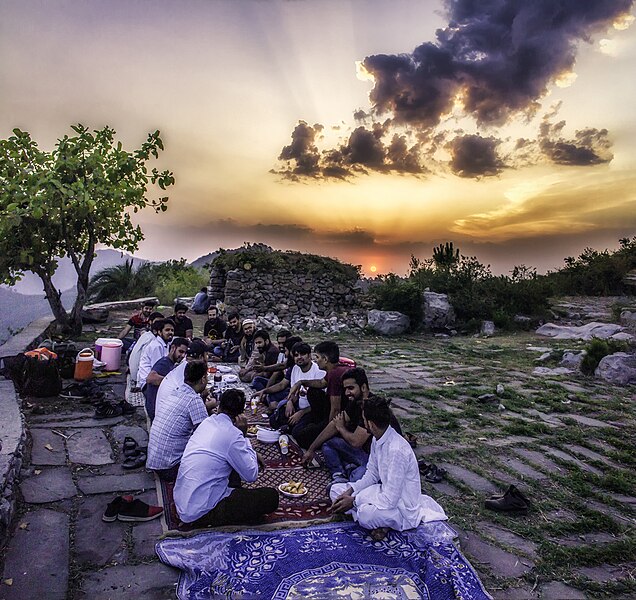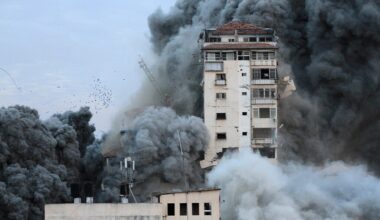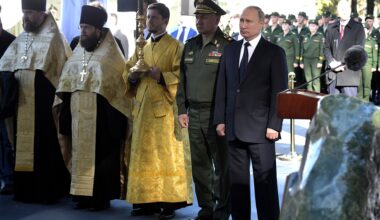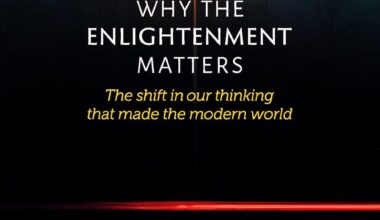
The Muslim holy month of Ramadan, which celebrates the first revelation from the angel Jibril (Gabriel) to Muhammad in 610 CE, ends in a few days, on 9 April. During Ramadan, every adult Muslim must fast from dawn to sunset. As one Muslim website explains, this means ‘avoid[ing] food and drink (including water), sexual activity, smoking, intoxication, and any impure thoughts.’ In Muslim-majority countries, Ramadan also means that Islam dominates everyone’s life even more than usual. In Pakistan, with its increasing religious intolerance and strict Islamic laws, it is very difficult for ex-Muslims like me to survive at the best of times—and Ramadan makes it even harder.
I have not publicly declared myself an ex-Muslim because doing so could easily cause my death. Living with my family in a small Pakistani city, I pretend I am a moderate Muslim. The commencement of the month of Ramadan means a complete change in lifestyle and daily routine. Working hours and conditions change. Most shops remain closed until the afternoon. All restaurants are closed until dusk. Most people, who are not very religious outside of the holy month, become more observant—Islamic garb becomes more visible and beards grow longer. Attitudes harden, too, and anyone who is seen as not religious is made to feel unwelcome in this atmosphere.
Though my family is relatively moderate and gives me some space to be free, it is still risky to tell them that I don’t participate in Ramadan. Therefore, in front of them, I pretend to fast while secretly eating and drinking whenever I get the chance. There are two important meals during Ramadan. One is Sehri or Suhoor; this is the meal that is eaten before dawn. You have to wake up very early to eat this meal—and if you miss it, you won’t have anything to eat or drink during the day until the second meal, Iftar, which is eaten at sunset to break the fast.
During Ramadan in Pakistan, it is very difficult to eat or drink during the daytime even if you are not fasting. Pakistan is a Muslim-majority country, and the majority of Muslims here are devoutly religious, at least during Ramadan, so most people are fasting. There are also laws forbidding public eating and drinking during the daytime during Ramadan. Perhaps most importantly, the Pakistani version of Islam is a very insecure one. You have to display your religiosity if you want social approval; by the same token, it is considered compulsory to criticise and humiliate those who are not acting religiously during this time. People who engage in activities forbidden by Pakistani Islamic laws—such as sex outside of marriage, drinking alcohol, selling drugs, etc.—tend to become very religious during this month, and they police the behaviour of others—all the better to protect themselves from scrutiny.
In 2013, a paan seller was jailed for five days for violating the [Ramadan sanctity] ordinance but it took him six years to get out of jail.
In 1981, the notorious Pakistani dictator General Muhammad Zia-ul-Haq issued the Ehtram-e-Ramazan Ordinance. The purpose of this ordinance was to protect the sanctity of the month of Ramadan. According to this ordinance, no person can eat or drink during Ramadan in any public place, including hotels and canteens. Anyone found eating or drinking can be sent to jail for three months. This law also forbids restaurant owners from selling or offering food to anyone during fasting hours. Cinemas and theatres are also bound by this law to be closed for the entire month. This law has caused much trouble for liberal/non-practising Muslims, non-Muslims and ex-Muslims. In 2013, a paan seller was jailed for five days for violating the ordinance but it took him six years to get out of jail.
I have a few other ex-Muslim friends in my city who face similar problems too. The only public place where edibles are available is the hospital canteen. So whenever possible, one of us gets (or, rather, smuggles) edibles from the canteen and we gather in a private space to secretly enjoy our tea, food, and water. This activity keeps us safe from prying eyes. But due to the nature of my work, I usually remain indoors. I live and work alone in the upper portion of my home. I rarely get any visitors so I have secretly kept some dates, a water bottle, and some other edibles which I can consume during fasting hours to maintain my body’s nutrients. I sometimes get bored of this fare but in this environment, I have little choice but to accept it. At least my family does not force me to recite the Quran or go to pray at the mosque. Overall, it’s a better deal for me than for many others.
Over the past few years, religious intolerance has grown in Pakistan. Tehreek-e-Labbaik Pakistan (TLP) is an Islamist extremist political party founded in 2015 that has become more and more prominent. This party openly calls for the murder of apostates and even for the execution of Muslims who commit acts deemed by the TLP as un-Islamic. Ex-Muslims and religious minorities like Ahmadi Muslims and Hindus are all living in a state of constant fear as the Islamists grow in numbers and influence. During Ramadan, even non-Muslims are forced to remain hungry and thirsty because they fear Muslim majoritarianism.
All of this impacts my life in multiple ways. Physically, my body needs a constant supply of food after short intervals to keep functioning, otherwise I feel giddy and drained. During Ramadan, therefore, it becomes very hard for me to function and I barely survive. This physical breakdown leads to mental health issues which impact my job, my relationships, and everything in between. During Ramadan, working hours also change, which affects me financially. For all these reasons and more, Ramadan is a nightmare month for me—and the thousands like me.
Pakistan is becoming increasingly mired in extremism, as the rise of the TLP shows. This marginalises even further the many people who disagree with the majority religious view. Such people are unable to declare their true opinions and are forced into participating in a religious observance they do not believe in. Instead of policing people’s religious beliefs (or lack thereof), the Pakistani state should use its resources to improve the welfare of the Pakistani people. Efforts are better expended on the development of the country than on interference in religious affairs, which should be private. Pakistanis need to create a country where people with diverse religious views can coexist without any fear of the majority. A good start would be repealing the 1981 ordinance and allowing Pakistanis to make their own choices as to which beliefs and practices they will subscribe to.
More on freethought in Pakistan:
Breaking the silence: Pakistani ex-Muslims find a voice on social media, by Tehreem Azeem
Coerced faith: the battle against forced conversions in Pakistan’s Dalit community, by Shaukat Korai
From religious orthodoxy to free thought, by Tehreem Azeem








2 comments
I thought all religions were religions of peace? What I find “quaint” is how the natural cycle of life has been appropriated by religions and religious ritual. What are these religious festivals but a marking of natural time in terms of planet Earth’s location relative to the Sun and the onset and ending of the different seasons on Earth? Instead of using terms like Ramadan, Easter or what ever other religious term, we should all simply call it Spring and wish one another a Happy Spring Time!
https://youtu.be/9xgKIOzPwko?si=U2LmS9tHiIDBgbaQ
Your email address will not be published. Comments are subject to our Community Guidelines. Required fields are marked *
Donate